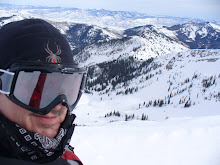



Recently I was down in Monroe, MI and took some pics of the statue of Gen. George Armstrong Custer. Custer has long been a hero of mine. His flamboyant style, reckless bravery, and the fact that he hails from my home state are all factors in my admiration of him. Yes, he miscalculated and was killed along with his entire command at the Battle of the Little Big Horn, but was instrumental in the Union victory at Gettysburg.
Although he was not a gifted student at West Point, he never the less was appointed to the rank of second lieutenant at the outbreak of the Civil War, and was attached to the Second Cavalry during the Battle of Bull Run. During the Peninsular Campaign, he was reassigned to the 5th Cavalry where he got his first chance to lead four companies of the 4th Michigan Infantry in a successful attack across the Chickahominy River. Although a minor skirmish, Maj. Gen. George B. McClellan, commander of the Army of the Potomac, was made aware of it and personally congratulated Custer. McClellan took a liking to Custer, and he was attached to his staff as an aide-de-camp. Custer then began to network with fellow officers of higher rank and embarked on a campaign to secure higher rank and eventually attained his own command. Although he had a penchant for over elaborate, showy uniforms, Custer won the respect of his men for his willingness to lead his men at the front of cavalry charges, never hanging back to avoid being wounded as other officers did.
At 23, Custer was promoted to Brigadier General.
Although many feel that Custer was reckless, meticulous planning preceeded each action that he led. As Marguerite Merrington explains in
The Custer Story in Letters, "George Custer meticulously scouted every battlefield, gauged the enemie's weak points and strengths, ascertained the best line of attack and only after he was satisfied was the 'Custer Dash' with a Michigan yell focused with complete surprise on the enemy in routing them every time."
At Gettysburg, Custer and the first Michigan Cavalry thwarted an attack on the rear of the Union Army led by J.E.B. Stuart, breaking the back of the Confederate assualt.
Near the end of the war, Custer blocked the retreat of Robert E. Lee near Appomattox Court House, and received the first flag of truce from the Confederate forces.
The facts of the Battle of the Little Big Horn have been widely explored, and yes, Custer recklessly split his forces while facing an enemy that outnumbered him by at least two to one. I have to wonder if in the fog of war Custer's scouts provided him with faulty intellegence. In this day and age it is popular to view Custer's life through the lens of this one engagement without giving him credit for his deeds in the Civil War.
In his biography of Custer
Son of the Morning Star , Evan Cornell wrote: "These days it is stylish to denigrate the general, whose stock sells for nothing. Nineteenth-century Americans thought differently. At that time he was a cavalier without fear and beyond reproach."





























 This is Fort Mackinaw. It was built by the British in 1780 to protect the lucrative fur trade route of the straits. In front is a statue of Father Jacques Marquette, whose arrival predated the British presence on the island by over 100 years. Native Americans are believed to have settled the island around 900 AD. the Ojibwa tribe considered this place to be the home of the Great Spirit (
This is Fort Mackinaw. It was built by the British in 1780 to protect the lucrative fur trade route of the straits. In front is a statue of Father Jacques Marquette, whose arrival predated the British presence on the island by over 100 years. Native Americans are believed to have settled the island around 900 AD. the Ojibwa tribe considered this place to be the home of the Great Spirit ( 

 Motor vehicles of any kind are not allowed so your only choices are foot, bicycle, or horse drawn carriage.
Motor vehicles of any kind are not allowed so your only choices are foot, bicycle, or horse drawn carriage.  This is St. Anne's Catholic Church.
This is St. Anne's Catholic Church. This is Round Island, which forms the "tail" of the Great Turtle.
This is Round Island, which forms the "tail" of the Great Turtle. Post race celebration.
Post race celebration. 




